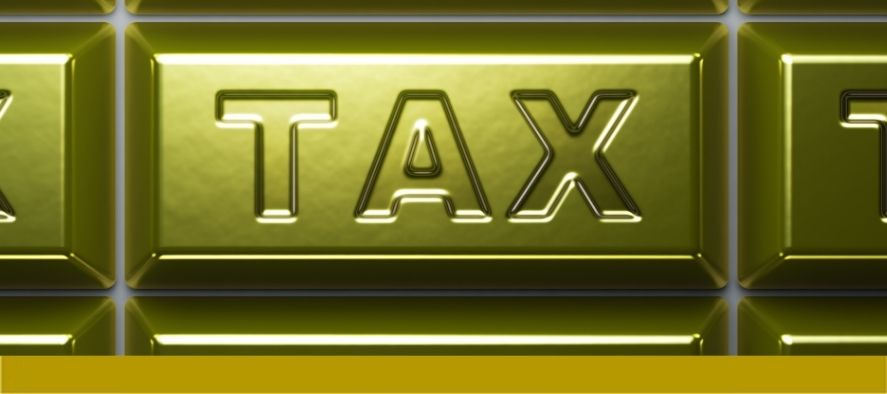Last Updated on February 15, 2024 by Ben
If you are trading gold as an investment, you must normally pay long- or short-term capital gains taxes, depending on whether you owned the gold for longer than a year. You should also be aware of other factors that can change how much tax the IRS will collect from your transactions and on how you avoid tax on gold.
Can you Buy & Sell Gold Without Paying Taxes?
The way gold is taxed can be complicated. If you are feeling a little confused, that is understandable. Gold is different from other investments, and the tax rules are complex. You can own gold in many ways, making it even more complicated to understand how taxes will be applied.
Capital Gains Tax
The IRS regards gold and other precious metals to be a type of collectible. Therefore, if you sell it after holding it for less than one year, the IRS will tax you as if you made an ordinary income, the same as short-term capital gains.
If you hold an item for more than one year, then it is taxed at the long-term rate of 28%. If you are in a 28% or greater federal tax bracket, your net long-term gains from collectibles are taxed at 28%. If you fall into a lower federal tax rate, your net long-term gains from collectibles will be taxed according to your individual income bracket.
The IRS’s collectibles designation encompasses investment-grade gold and silver, including:
- All types of gold, silver, or other precious metal coins and bars
- Precious metal “rounds” and commemorative coins
- Certificate of gold such as those from the Perth Mint
- Some Gold ETFs can come about from a few different types of investment vehicles. Precious metal ETFs are divided into three groups: physical-backed ETFs, like GLD, are usually taxed as collectibles. The second group is securities “tied to” precious metals, such as mining stocks or mutual funds. They are usually taxed as securities. The third group is closed-end funds, which are also treated as collectibles.
Sell any precious metal at a profit, and the profit will be taxed at a federal rate of 28% or less. Conversely, sell any form of precious metal at a loss, and it will be used to offset any capital gains you have.
Privacy & Reporting
One of the many interesting features of owning physical gold and silver is that they are both secure and confidential. Today, there are very few investments that you can say this about.
One of the first things to remember when it comes to privacy and confidentiality is that there are two issues to think about: buying and selling.
When you purchase precious metals in the US, it is private. If you buy gold from a dealer, the dealer does not tell the IRS what they sold to you. They will only do that if both of these conditions are true:
- The transaction(s) is more than $10,000; AND
- Cash (or bank or certified checks, money orders, etc.) is used to buy gold.
The dealer will be required to file a Form 8300 with the IRS and Suspicious Activity Report (SAR) with Financial Crimes Enforcement Network when they are in this highly unlikely event. Your transactions are also processed discreetly. All of the payment methods come with encryption to protect your data.
One other exception is that, when selling gold or silver inside your IRA, you trigger a reporting requirement from the custodian on Form 5498. This discloses all of your IRA investments each year. This supposedly allows the IRS to track your ‘basis’ and properly check calculations for taxes owed at the time of withdrawal.
Owner Reporting
Selling precious metals overseas may incur different taxes based on the country you sell them in. When you sell gold or silver in the US, however, it can be somewhat puzzling as there are actually two separate sets of reporting guidelines—one applies to dealers, and one applies directly to each individual investor.
When selling precious metal in the US, even if a dealer is not required to report that profit on their side, you are still required by law to report it as income and pay taxes for the year based on your current tax bracket.
Dealer Reporting
There are certain circumstances where the dealers are required to file Form 1099-B with the IRS to report proceeds paid to sellers of precious metals, who may or may not have reported these payments on their tax returns. This helps determine if the seller has properly claimed this income. The IRS has specific rules about when a dealer is asked to file Form 1099-B.
The International Council for Tangible Assets (ICTA) has published guidelines specifying which precious metal transactions must be reported to the Internal Revenue Service based on the agreement they had.
While ICTA reports that they agree with the spirit of their conversations with the IRS, they are only guidelines and are not a ruling. They are open for interpretation and subject to change without notice. As you likely know, things can be touch-and-go when it comes to taxes, which is why it’s important to contact your tax professional.
Tax Implications of Selling Physical Gold or Silver
Physical holdings in precious metals are considered by the IRS to be capital assets specifically classified as collectibles. Therefore, holding gold in any form—such as bullion coins, bullion bars, rare coinage, or ingots—makes it subject to capital gains tax. This tax is owed only after the sale of such holdings and if these holdings were held for more than one year.
In contrast to tradable securities, the sale of precious physical metals is taxed at a different rate: whichever income tax bracket you’re in.
Like stocks mutual funds, many tradable financial securities are taxed subject to short-term or long-term capital gains. However, the sale of precious physical metals is slightly different from those assets and is taxed differently.
Physical holdings of precious metals are subject to a capital gains tax exclusive of the 28% maximum.
Those selling precious physical metals who fall into the 33%, 35 %, and 39.6% brackets only have to pay the capital gains tax no more than 28%. Short-term trades on precious metals are taxed at ordinary rates.
How to Minimize Taxes on Your Gold
The first rule for gold investors is to hold your investment for a minimum of one year. This lets you get long-term capital gains treatment, which is the best kind of tax treatment, a maximum of 28% for collectibles. Compared with short-term gains that are taxed at ordinary income levels.
Some people have to pay more taxes than other people. For example, if you earn over $321,450 as a couple, you will have to pay 32% in taxes. And if you earn even more than that, then you will be taxed at 35%.
Buying gold within a self-directed IRA provides an opportunity to buy and sell without taxes. Taxes are normally only incurred when there is a withdrawal from the IRA.
If coins or bullion are passed down to heirs, the beneficiaries would have a “reset” date of cost basis, which could minimize potential tax liability.
When buying and selling precious metals, you always want to be on the long-term end. So not only could it make for a good investment opportunity, but it can also save with taxes.
Related Articles:
- Gold Ira Company Investing Services
- Gold Weight
- Gold Ira Precious Metals Allowed
- Gold Ira American Eagle platinum coin value
Recommended Services:
Gold Gifts to Family to Avoid Taxes
Gifts of gold are one popular way to pass wealth from generation to generation. Gifts of up to $10,000 for an individual per year are not taxable according to current law if the gift is made since there is no tax obligation.
This strategy is popular with the older generation because they are looking to cut down on their taxable estate. It can be good for anyone who wants to put some of their money in the hands of younger generations, while they can still enjoy it.
Gifts can be a great way to remove potential tax obligations from your estate and contribute to younger generations who may not otherwise receive the monetary gift.
Conclusion
You only incur taxes when you make a profit from your gold. However, there are many ways to avoid it, and it is best if you research these thoroughly.
Compared to the risks of other major investments like stocks and bonds, it is worth noting that gold remains one of the most effective hedges against long-term financial risk. Adding gold and silver to your portfolio can help protect it against some risks, like inflation or crashes in the market. Just be sure that you are well informed of the tax implications before investing in this precious metal.


